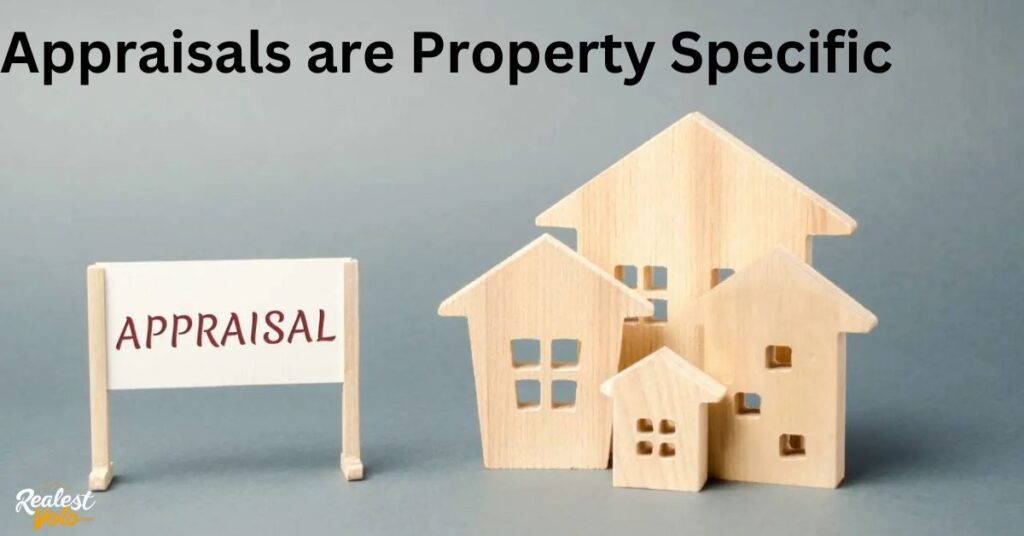When it comes to buying, selling, or investing in real estate, accurately determining the value of a property is crucial. One method used by industry professionals is a Broker Opinion of Value (BOV), also known as a Broker Price Opinion (BPO).
In this comprehensive guide, we’ll explore what a BOV is, how it differs from an appraisal, and when it’s commonly utilized in the real estate world.
What Is a BOV in Commercial Real Estate?
A Broker Opinion of Value (BOV) is an informal assessment of a property’s market value, typically provided by a licensed real estate broker or agent. Unlike a formal appraisal, a BOV is not an official valuation but rather an educated estimate based on the broker’s knowledge of the local real estate market, comparable property sales, and other relevant factors.
In the commercial real estate sector, BOVs are often used by property owners, investors, lenders, and other stakeholders to quickly gauge the approximate value of a commercial property, such as an office building, retail center, or industrial facility. These valuations can play a crucial role in investment decisions, financing negotiations, and portfolio management strategies.
What Are the Differences Between a BOV and an Appraisal?
While both BOVs and appraisals aim to establish a property’s market value, there are several key distinctions:
BOVs Are Informal/Unofficial Assessments of Market Value
As mentioned earlier, a BOV is an informal estimate provided by a real estate professional based on their market expertise and analysis of comparable sales. It does not carry the same legal weight or formal requirements as an appraisal.
BOVs Are Often Free of Charge
In many cases, real estate brokers offer BOVs as a complimentary service to clients or potential clients, whereas appraisals typically involve a fee paid to an independent, licensed appraiser. This cost-effective nature of BOVs makes them attractive for quick valuations or preliminary assessments.
Appraisals Are Carried Out by an Independent Third-Party
Appraisals are conducted by licensed and certified appraisers who are required to follow strict professional standards and methodologies. These appraisers have no vested interest in the property being appraised, ensuring impartiality and objectivity in their valuations.
Appraisals are Property Specific

Appraisals involve a comprehensive analysis of a specific property, including an on-site inspection, consideration of comparable sales, local market conditions, and other relevant factors. BOVs, on the other hand, may rely more heavily on market data and comparable sales without an in-depth analysis of the subject property.
BOVs Are Restricted by Some State Laws
Certain states have laws or regulations that limit the use of BOVs or require specific disclosures when providing them, particularly in the context of mortgage lending. It’s essential for real estate professionals to be aware of and comply with any applicable state laws regarding BOVs.
Also Read: When Is It Too Late To Stop Foreclosure On Your Home?
BOV vs BPO: What’s the Difference?
While the terms “Broker Opinion of Value” (BOV) and “Broker Price Opinion” (BPO) are often used interchangeably, there is a slight distinction:
- A BOV is a broker’s estimate of a property’s current market value, taking into account comparable sales, market conditions, and other relevant factors.
- A BPO, on the other hand, is a broker’s recommended listing price or sale price for a property, based on their analysis of the market and the property’s condition.
In practice, both BOVs and BPOs serve similar purposes and involve similar processes, but a BPO is more specifically focused on determining an appropriate listing or sale price.
How Does a Broker Determine a BOV?
When providing a Broker Opinion of Value, real estate professionals typically follow a systematic process that includes:
Property Walk-Through and Inspection
The broker will conduct an on-site inspection of the subject property, noting its condition, features, and any potential issues or necessary repairs. This first-hand observation is crucial for accurately assessing the property’s value.
Property Data Collection
The broker will gather and analyze relevant information about the property, such as:
- Square footage
- Number of bedrooms/bathrooms (for residential properties)
- Lot size
- Age and condition of the property
- Recent renovations or upgrades
- Zoning and permitted uses
- Property tax records
- Income and expense data (for income-producing properties)
Market Data Collection

The broker will research and analyze recent sales of comparable properties (known as “comps”) in the local area, taking into account factors like:
- Location
- Property type
- Age and condition
- Size
- Amenities
- Sale prices
By analyzing this market data and comparing it to the subject property, the broker can make an informed estimate of the property’s current market value. Identifying truly comparable properties is a critical step in this process, as it ensures an accurate representation of the local market dynamics.
When and Why a Broker Opinion of Value (BOV) Is Used
BOVs are commonly utilized in various real estate scenarios, including:
- Listing a Property for Sale: Real estate agents often provide a BOV to help sellers determine an appropriate listing price for their property. This initial valuation can help set realistic expectations and maximize the chances of a successful sale.
- Mortgage Lending: Lenders may request a BOV as part of the loan approval process, particularly for properties that don’t require a full appraisal or in situations where a quick valuation estimate is needed. BOVs can help lenders assess the potential collateral value and mitigate risk.
- Investment Analysis: Real estate investors and property owners may use BOVs to evaluate the potential value of an income-producing property or to determine the feasibility of a proposed investment. This can include analyzing the property’s net operating income, capitalization rate, and potential returns.
- Estate Planning: BOVs can assist in valuing real estate assets for estate planning purposes, such as determining the value of a property for tax or inheritance purposes, ensuring fair distribution of assets among beneficiaries.
- Divorce Proceedings: In the context of divorce settlements, BOVs can help establish the value of jointly owned real estate assets for equitable distribution during property division.
- Portfolio Management: Real estate investment firms, property management companies, and other organizations with large real estate portfolios may utilize BOVs to periodically assess the value of their holdings and make informed decisions about acquisitions, dispositions, or capital improvements.
It’s important to note that while BOVs provide a valuable estimate, they are not a substitute for a formal appraisal in situations where an official valuation is required, such as for most mortgage lending purposes or in legal disputes over property value.
Also Read: What Happens To Tenants When A Property Is Condemned
What Should Every BOV Include?
To ensure a comprehensive and reliable Broker Opinion of Value, it should typically include the following elements:
Property Information
- Address and legal description of the property
- Property type (e.g., single-family home, condominium, commercial building)
- Size (square footage, number of units, etc.)
- Age and condition of the property
- Notable features or amenities
- Zoning and permitted uses
Property Condition
- A detailed description of the property’s overall condition, including any necessary repairs or renovations
- Photographs or videos documenting the property’s condition
- Assessment of any functional obsolescence or external influences impacting the property’s value
Market Conditions
An analysis of the current real estate market trends in the local area, including:
- Inventory levels
- Absorption rates (for commercial properties)
- Average days on market
- Price appreciation or depreciation rates
- Economic and demographic factors influencing demand
Sales Prices of Comparable Properties (Comps)
A list of recent sales of comparable properties in the area, including:
- Address
- Property type
- Size
- Sale price
- Date of sale
- Adjustments made for differences between the subject property and the comparable
Final Value Estimate

- The broker’s final opinion of value for the subject property, supported by the data and analysis provided in the BOV
- A clear explanation of the valuation methodology and rationale used to arrive at the estimated value
Using Property Analytics to Collect Insights for BOVs
In today’s data-driven real estate market, brokers and agents have access to powerful property analytics tools that can enhance the accuracy and reliability of their BOVs. These platforms leverage vast amounts of property data, market trends, and advanced algorithms to provide valuable insights and facilitate more informed valuations.
Some key benefits of using property analytics for BOVs include:
- Access to Comprehensive Comparable Sales Data: Property analytics platforms aggregate and analyze vast amounts of real estate transaction data, providing brokers with a more extensive pool of comparable sales to reference.
- Automated Valuation Models (AVMs): Many property analytics solutions employ sophisticated AVMs that use machine learning algorithms to estimate property values based on a wide range of data inputs.
- Market Trend Analysis: These platforms offer in-depth analysis of local and regional real estate market trends, including pricing trends, inventory levels, and demand indicators, which can inform more accurate BOVs.
- Predictive Analytics: Some property analytics tools leverage predictive modeling techniques to forecast future market conditions and property values, helping brokers anticipate potential value changes.
By leveraging these advanced property analytics capabilities, brokers can enhance the accuracy and credibility of their BOVs, providing clients with more data-driven and reliable value estimates.
Frequently Asked Question
What is a BOV in real estate?
A BOV is an informal estimate of a property’s market value provided by a licensed real estate broker or agent.
How is a BOV different from an appraisal?
A BOV is an unofficial valuation based on market knowledge, while an appraisal is a formal, independent evaluation following strict standards.
When is a BOV commonly used?
BOVs are used for listing properties, mortgage lending, investment analysis, estate planning, divorce proceedings, and portfolio management.
What factors do brokers consider for a BOV?
Brokers evaluate property conditions, comparable sales, market trends, and other relevant data.
Can a BOV substitute for an appraisal? \
No, a BOV cannot substitute for a formal appraisal when an official valuation is required.
Final Words
A Broker Opinion of Value (BOV) is a valuable tool in the real estate industry, offering a quick and informal estimate of a property’s market value. While BOVs are not a substitute for formal appraisals in situations where an official valuation is required, they serve as an essential starting point for pricing decisions, investment analysis, and various other real estate transactions.
By carefully evaluating property characteristics, analyzing comparable sales, and considering local market conditions, real estate professionals can provide clients with well-reasoned BOVs that support informed decision-making. As the real estate industry continues to embrace data and analytics, the role of BOVs is likely to become even more important, enabling brokers to deliver accurate and insightful valuations with greater efficiency and confidence.
A well-executed BOV can streamline real estate processes, facilitate more informed negotiations, and help clients make sound investment choices. As a crucial component of the real estate professional’s toolkit, the BOV remains a valuable resource in navigating the complexities of the ever-evolving property market.











